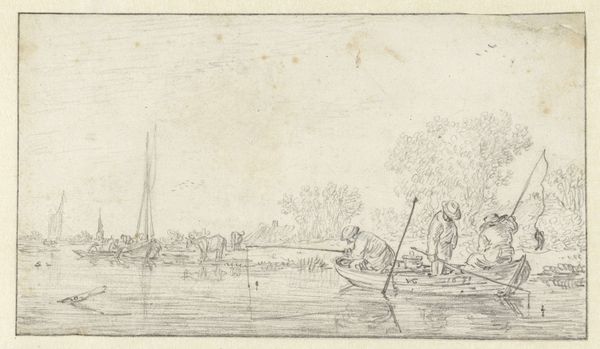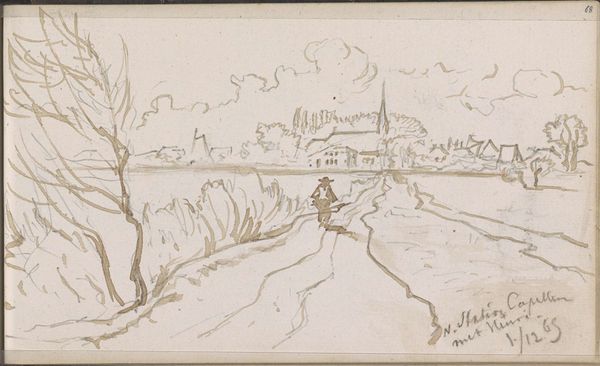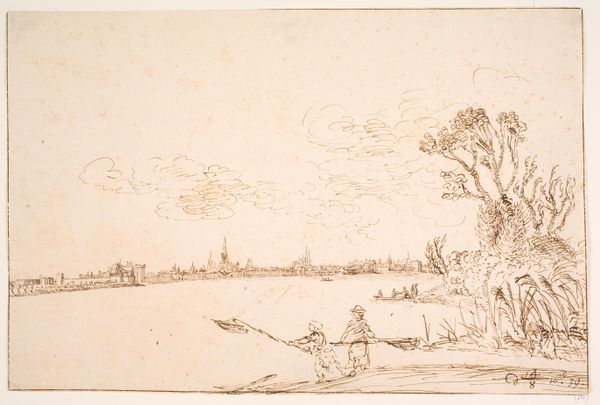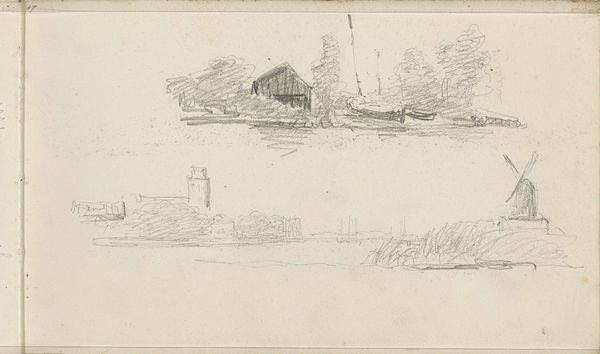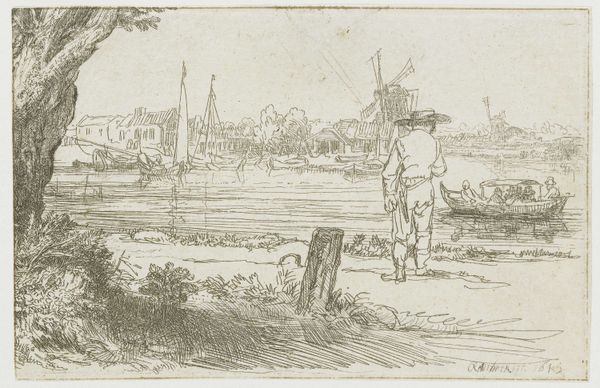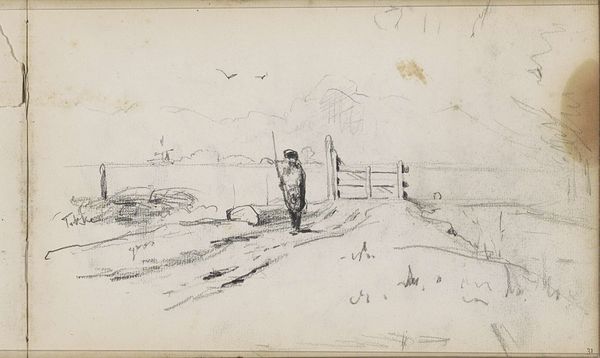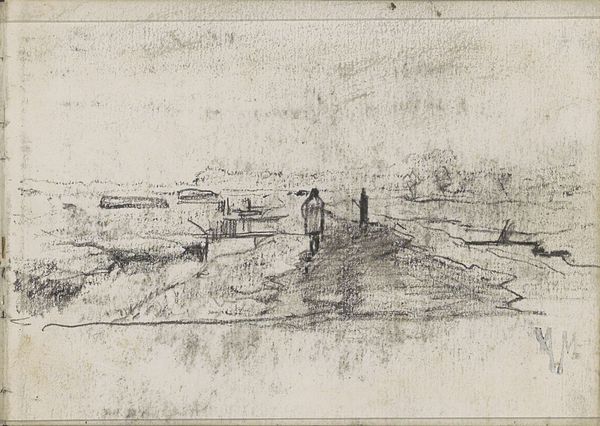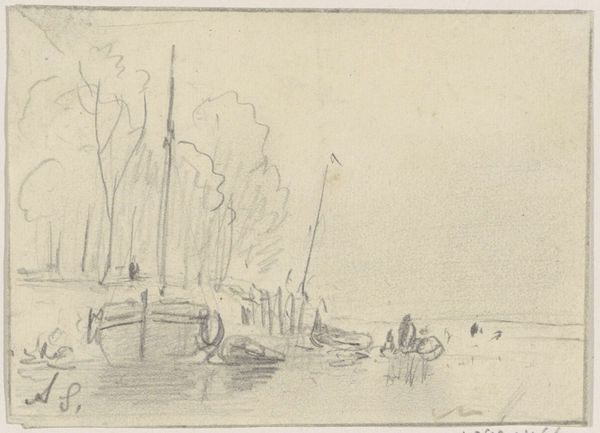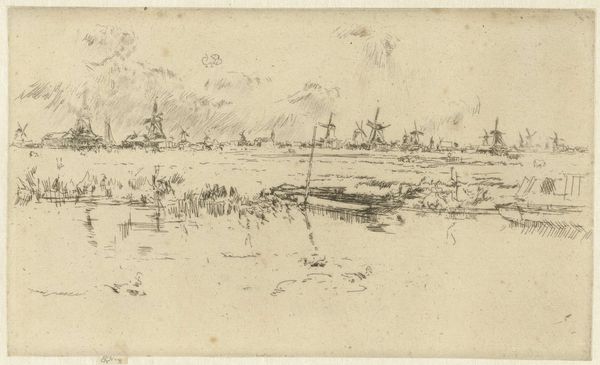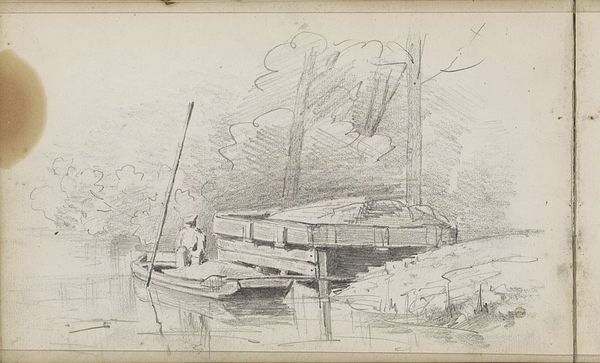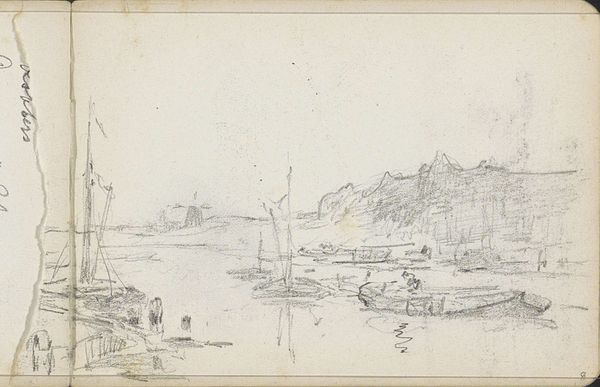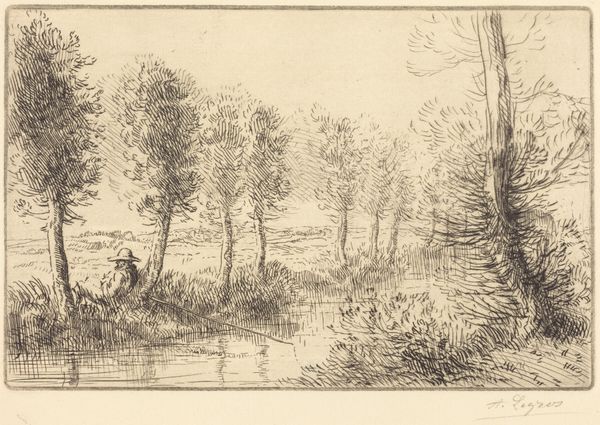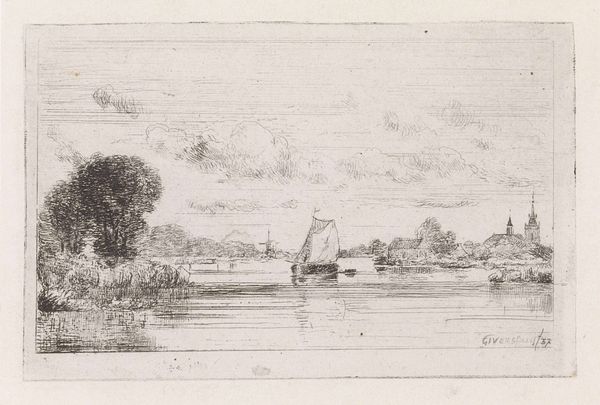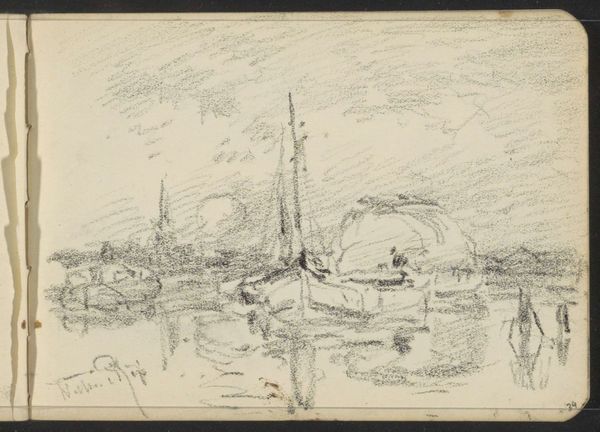
drawing, pencil
#
drawing
#
dutch-golden-age
#
impressionism
#
pencil sketch
#
landscape
#
river
#
pencil
Dimensions: height 158 mm, width 247 mm
Copyright: Rijks Museum: Open Domain
Curator: Welcome. Before us we have Willem Cornelis Rip’s “Rivierlandschap met molens," River Landscape with Windmills, created around 1876 or 1877. A delicate drawing done in pencil. Editor: My first thought is of impermanence. It feels fleeting, like a memory half-grasped or a song hummed in the wind. The grey pencil strokes really enhance this dreamy sensation. Curator: Yes, the choice of materials does speak volumes. The immediacy of pencil lends itself to the plein air sketches that Impressionists were so fond of, but I think we often overlook how that immediacy relates to the laborious industries these landscapes depicted. Those windmills were hard at work, grinding grain, and shaping the land, playing a crucial role in the Dutch Golden Age economy. Editor: It’s fascinating to see that juxtaposition between the seemingly effortless impressionistic strokes and the industry itself, though it isn't glorified as much as other examples. You can almost feel the weight of that man’s labor depicted walking in the foreground. He isn't overtly idealized as some great industrious machine in himself, which may say something on Rip's perspective. Curator: I find that it says a lot more, in its understatement, really inviting a deeper look. Beyond the economic implications, look at how the soft gradations in the sky mirror those in the water—a poetic meditation, almost, on reflection. You get the impression of Rip losing himself as he sketches in the moment. The windmills might have social implications as sites of labor and capital, but there is so much that goes into how we as humans place ourselves into the natural world. Editor: So, where one sees a statement of labor and industry I find an emotive expression of human feeling in it; an echo of self, I suppose. A reflection on that, even, using windmills and social implication as simply an added ingredient in his perspective as a subjective individual in dialogue with it all. Curator: Precisely! It seems that regardless of the labor necessary in constructing or producing objects that exist around us, the more profound moments sometimes lay in their capability to elicit personal feeling or insight in the experiencer. It's what allows us to transcend the pure production, and it brings value to our own fleeting time.
Comments
No comments
Be the first to comment and join the conversation on the ultimate creative platform.
